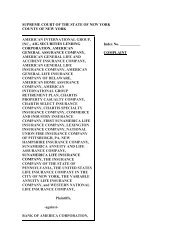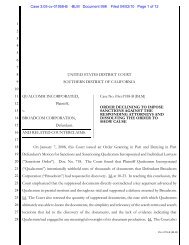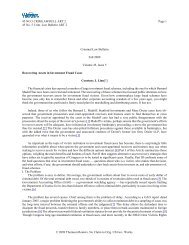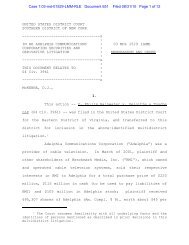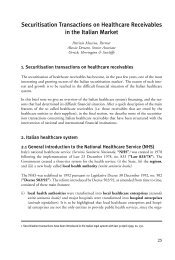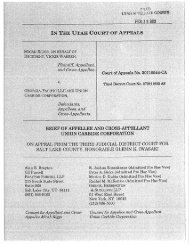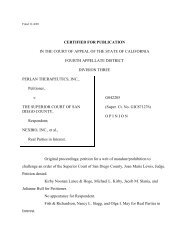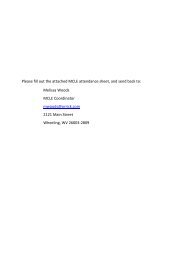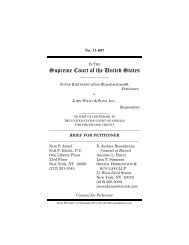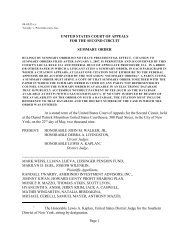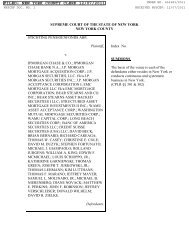Public Charter Schools Borrowing With Tax-Exempt Bonds, Second ...
Public Charter Schools Borrowing With Tax-Exempt Bonds, Second ...
Public Charter Schools Borrowing With Tax-Exempt Bonds, Second ...
You also want an ePaper? Increase the reach of your titles
YUMPU automatically turns print PDFs into web optimized ePapers that Google loves.
chapter nine<br />
Market Disclosure<br />
The capital markets obey the fundamental economic rule of supply/demand.<br />
Thus, one consideration in undertaking borrowing with tax-exempt bonds is the<br />
determination as to whether bonds will be offered for sale to the public capital<br />
markets (a “public offering”) or instead privately offered to one or a select few<br />
investors (a “private placement”). Invariably, the broader a market for a public<br />
charter school’s bonds, the lower the cost of funds (or interest rates) the school will<br />
be able to obtain. Thus, a public offering, if possible, is almost always expected<br />
to be more favorable than a private placement. In either case, the school must<br />
provide initial and ongoing information to investors about itself and its bonds.<br />
This chapter describes various aspects of public offering versus private placement<br />
of tax-exempt bonds.<br />
A. <strong>Public</strong>ly Offered <strong>Bonds</strong><br />
The offering and sale of securities is regulated by federal laws codified primarily in<br />
the Securities Act of 1933 (the “Securities Act”) and the Securities Exchange Act of<br />
1934 (the “Exchange Act”). <strong>Public</strong> charter school bonds constitute “securities” for<br />
purposes of the Securities Act and the Exchange Act. For most corporate securities,<br />
a public offering must be preceded by filing a registration statement with the SEC<br />
pursuant to the Securities Act, and the corporation is required to make periodic<br />
reports to the SEC pursuant to the Exchange Act. Municipal securities, moreover,<br />
including those of most public charter schools, are exempt from the registration<br />
requirements of the Securities Act and from the reporting requirements of the<br />
Exchange Act. However, the offering and sale of public charter school bonds is not<br />
exempt from the anti-fraud provisions of the Securities Act or the Exchange Act.<br />
In addition, the SEC’s rules governing underwriters of municipal bonds effectively<br />
<strong>Public</strong> <strong>Charter</strong> <strong>Schools</strong> <strong>Borrowing</strong> <strong>With</strong> <strong>Tax</strong>-<strong>Exempt</strong> <strong>Bonds</strong>, <strong>Second</strong> Edition 39



